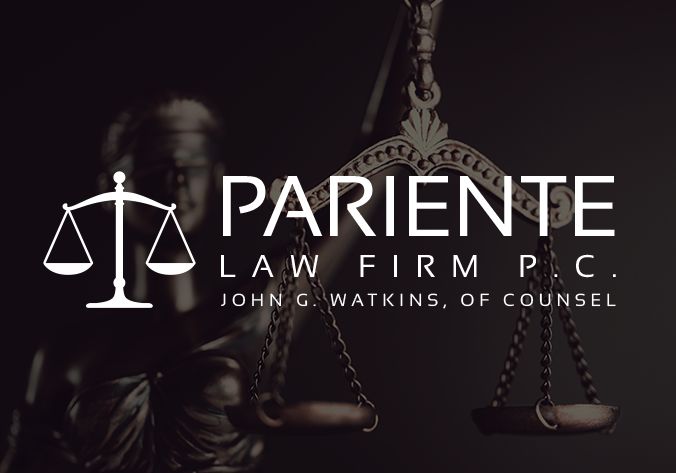False Statement to Procure Issuance of a Credit Card or Debit Card
Under NRS 205.680 a person makes a false statement to procure the issuance of a credit card or debit card commits a gross misdemeanor. The elements of the offense include:
- making or causing a statement to be made;
- for the purpose of procuring the issuance of a credit card or debit card;
- the statement is made either directly or indirectly;
- the false statement is in writing;
- the defendant knows the statement to be false;
- the act is committed with intent that it be relied on respecting his or her identity or financial condition or the identity or financial condition of any other person, firm or corporation.
Nevada Revised Statutes Regarding Credit Card Fraud
There are many Nevada Revised Statutes (NRS) that apply to credit and debit card fraud. A simplified list of these statutes and what they cover is as follows:
● NRS 205.680 – Intentionally using false information for the procurement of a credit or debit card.
● NRS 205.690 – Stealing, taking, removing or possessing a credit or debit card or the identifying information on the card or account from the cardholder without their consent or knowledge.
● NRS 205.710 – Selling or buying either a credit or debit card or the identifying information of the credit or debit card and/or the account they are connected to.
● NRS 205.720 – Obtaining control of a credit or debit card as security for debt.
● NRS 205.740 – The forgery of a credit or debit card with intent to defraud and/or the possession of two or more falsely made cards.
● NRS 205.750 – The unauthorized signing of a credit or debit card, a sales receipt or other related instrument with intention of defraud.
● NRS 205.760 – The fraudulent use of a credit or debit card, or the identifying information of a credit or debit card and/or the account they are connected to obtain money, goods, property, services or more.
● NRS 205.770 – Fraud by a person who was authorized to use a credit or debit card who then intentionally uses that card to fraudulently furnish money, goods, services or other things of value.
● NRS 205.780 – Fraud by a person who was authorized to use a credit or debit card who then intentionally used that card to fraudulently furnish or fail to furnish money, good, property, services or other things of value and then intentionally misrepresented to the cardholder the value of the purchases made or failed to be made.
● NRS 205.790 – The possession of two or more incomplete credit or debit cards or the equipment or machinery needed to produce fraudulent cards.
● NRS 205.800 – The receiving of property, money, goods services or other things of value by someone that knows or believes that these things were obtained by unlawful use of a credit or debit card.
Obtaining or Possessing a Stolen Credit Card
The Nevada Revised Code Section 205.690 prohibits a person from obtaining or possessing a credit card or debit card, or identifying description of credit card, credit account or debit card without consent of cardholder. The statute also contains certain presumption relating to a finding of possession and exemptions to those presumptions. The statutory scheme includes both credit cards and debit cards.
Under NRS 205.690(1) it is a category D felony to steal a credit card from a person without the person’s consent, with knowledge that it is stolen, with the intention to circulate, use or sell the card to another person.
Under NRS 205.690(2) is is a category D felony to possess a credit card without the consent of the cardholder and with the intent to circulate, use, sell or transfer the credit card or debit card.
Presumptions in Credit Card Fraud Cases
NRS 205.690(3) provides a presumption that a person “who has in his or her possession or under his or her control two or more credit cards or debit cards issued in the name of another person is presumed to have obtained and to possess the credit cards or debit cards with the knowledge that they have been stolen and with the intent to circulate, use, sell or transfer them with the intent to defraud.”
This presumption for credit card fraud cases does not apply to a person who possessed the cards in the regular course of employment or business or when the person possessed the cards with the consent of the cardholder.
Exemptions to the Credit Card Fraud Statute
NRS 205.690(3) provides that this prohibition against card card fraud does not apply to a person employed by or operating a business. By its terms this exemption includes the following types of employment:
- a bank or other financial institution;
- credit bureau;
- collection agency; or
- credit reporting agency.
The statute against fraud when possessing credit cards does not apply to those who act without the intent to defraud including any person who obtains the credit card number or account information in the ordinary course of that business or pursuant to a financial transaction entered into with a customer.
Federal Credit Card Fraud
The fraudulent use of credit or debit cards can also be a federal crime, with allegations resulting in the investigation of the alleged crime by the FBI, Federal Trade Commission, and the National Fraud Information Center. Federal charges of credit card fraud can be sought when the crime involves fraud that has crossed state lines or was committed either on property belonging to the federal government or committed against an entity of the federal government. It is possible for a crime of credit card fraud that meets these conditions can be tried in both the state and federal courts in Nevada.
Defending Charges of Credit Card Fraud
In the state of Nevada, most charges of credit card fraud can be defended in one or more of the following ways:
- No deliberate intention by the person charged with this crime to use a credit or debit card in an unlawful way. In many of these cases, the person accused of fraud is simply acting in the normal course of their employment without realizing that the credit card is stolen or being used in a fraudulent manner.
- An illegal search and seizure of evidence related to the fraud by police who obtained this evidence without proper procedure (such as obtaining a warrant). When evidence is obtained through an illegal search and seizure, the criminal defense attorney can move to exclude that evidence from the case, particularly when the evidence is taken from an individuals home or place of employment in an unreasonable manner.
- The mistaken identification and subsequent arrest of someone for committing credit card fraud who did not do so.
Penalties for the Conviction of Credit Card Fraud
The conviction of a crime that involved the fraudulent use of a credit or debit card or the information from a card or the account associated with it can result in serious penalties in Nevada.
For credit card fraud that is prosecuted as category D felony, the penalties are as follows:
● From 1 to 4 years in Nevada State Prison
● Up to $5,000 in potential fines and the potential for restitution paid to the victim of the fraud
For credit card fraud that is prosecuted as a Gross Misdemeanor, the penalties are:
● Up to 1 year in jail
● Up to $2,000 in potential fines
For knowingly using a credit or debit card that is expired or been revoked, the penalties can vary:
● For an amount of less than $100 within 6 months, the crime is a misdemeanor and can result in up to 6 months in jail and up to $1,000 in potential fines.
● For an amount of over $100 within 6 months, the crime is a category D felony, which can result in 1 to 4 years in Nevada State Prison, up to $5,000 in fines and restitution to the legal cardholder.
Additional Crimes Involving Fraud and Credit Cards
Sale or Purchase of a Stolen Credit Card – NRS 205.710 prohibits the sale or purchase of a stolen credit card or debit card. The crime is classified as a category D felony and shall be punished as provided in NRS 193.130.
Sale of identifying information on telephone calling card – NRS 205.715 prohibits a person from selling or offering to sell or make available a stolen telephone cooling card or the number, code, or account number of the card to obtain telephone services. The crime is classified as a category D felony.
Forgery of credit card or debit card – NRS 205.740 prohibits a person who falsely makes or falsely embosses or utters the purported credit or debit card. The crime is classified as a category D felony.
Unauthorized signing of credit card – NRS 205.750 prohibits a person who is not the cardholder or authorized by the cardholder to sign a credit card with intent to defraud. The crime is classified as a category D felony.
Fraudulent use of credit card or debit card – NRS 205.760 prohibits a person who, with the intent to defraud either uses a credit card or uses the number of a credit account to obtain money or anything else of value. The crimes classification depends on the value obtained in any 6-month period. The crime is classified as follows:
- a misdemeanor if the value is less than $100; or
- a category D felony if the value is one hundred dollars or more.
Additional Resource on Credit Card Forgery and Fraud in Las Vegas, Nevada
Fight Credit Card Fraud – Read information on fighting credit card fraud in the State of Nevada from the Department of Business and Industry including and list of do’s and don’ts to guard against fraud. The article also includes links to brochures on fighting fraud and advise on what to do if you think you have been the victim of fraud or a scam. Learn more about why hackers might be ahead of credit card security.
Fraud Detail of the Las Vegas Metropolitan Police Department – Learn more about frequently asked questions in criminal investigations for credit card fraud and identity theft in the greater Las Vegas area. Information on what happens when a husband or wife who are separated or divorced fraudulently use the credit card of the spouse.
Finding a Credit Card Forgery or Fraud Lawyer in Nevada
If you are charged with any form of identity theft in the State of Nevada, contact an experienced criminal defense attorney at Pariente Law Firm, P.C. These serious felony and misdemeanor offenses require an aggressive defense at every stage of the case. For cases prosecuted in federal and state court, contact attorney Michael Pariente at (702) 966-5310 to discuss your best defense.




